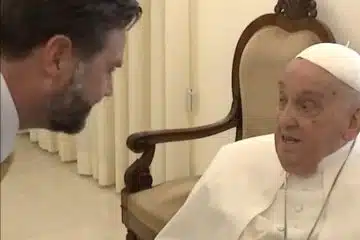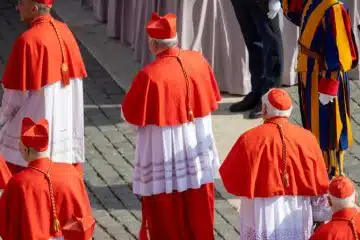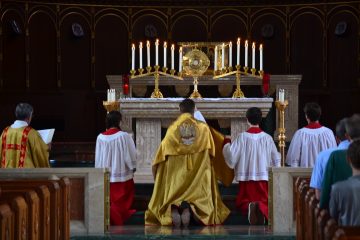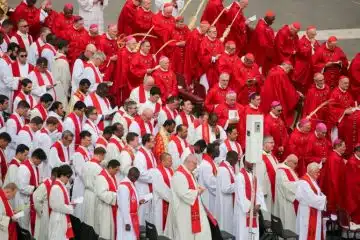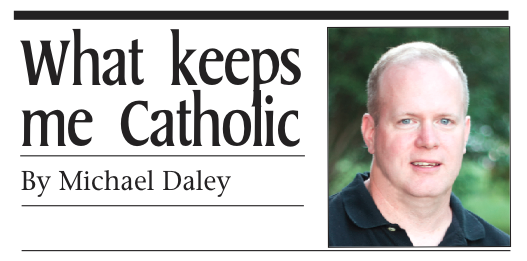What keeps me Catholic: Scandals can be of a profoundly theologial nature
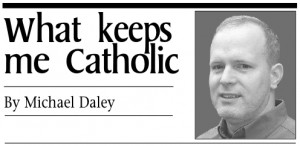 It’s a word the Catholic Church has long avoided being associated with — scandal. Far from it to be a cause of disillusionment or a stumbling block against faith.
It’s a word the Catholic Church has long avoided being associated with — scandal. Far from it to be a cause of disillusionment or a stumbling block against faith.
In the past, the very mention of scandal being a possibility was, depending on the activity, enough to get someone to do one thing or not to do another. Offense to faith was to be prevented at all cost.
As a result, over the years and centuries, dirty laundry was not aired and skeletons were kept in the closest. This led, at times, to the truth of human frailty and sinfulness being sacrificed to the perception of perfection and purity.
Yet, honestly, the church has long been and currently is rather familiar with scandal. Historically speaking one can offer the easy examples of the excesses of the Crusades and Inquisition, the selling of indulgences, and the long-standing practices of ecclesial nepotism (favoritism shown to relatives) and simony (the buying and selling of church offices).
More difficult to admit, though unable to deny, are the recent ones: ongoing financial mismanagement, even embezzlement; continuing occurrences of sexual misconduct and cover-ups; and reports of clerical corruption and backstabbing. This is seen most clearly in the ongoing Vatileaks controversy. Here Pope Benedict XVI’s personal butler stole and then leaked confidential documents.
It’s very easy for us to focus (and lose focus) on these scandals. There, for the whole world to see, is evidence of the church not living up to its calling to reflect the person of Jesus the Christ to the world. As a result, far too many Catholics have been given reason to fall away from or stop practicing their faith.
What keeps me Catholic are scandals of a more profound and theological sort. They call me not to dismiss my faith. Rather they take me to the very heart of it. While visiting his German homeland several years ago, Pope Benedict XVI described it well: “To put it another way: for people of every era, not just our own, the Christian faith is a scandal. That the eternal God should know us and care about us, that the intangible should at a particular moment have become tangible, that he who is immortal should have suffered and died on the cross, that we who are mortal should be given the promise of resurrection and eternal life — to believe all this is to posit something truly remarkable.”
He went on to say further: “This scandal, which cannot be eliminated unless one were to eliminate Christianity itself, has unfortunately been overshadowed in recent times by other painful scandals on the part of the preachers of the faith. A dangerous situation arises when these scandals take the place of the primary skandalon of the cross and in so doing they put it beyond reach, concealing the true demands of the Christian Gospel behind the unworthiness of those who proclaim it.”
St. Paul said much the same thing close to 2,000 years ago. Speaking to the Christian community in Corinth, he proclaimed “Christ crucified, a stumbling block to Jews and foolishness to Gentiles” (I Corinthians 1:23).
Yet, the season of Lent readies and prepares us for the scandal of the cross. In short: instead of being met with public acclaim and popular notoriety, Jesus receives ridicule, rejection, and, ultimately, crucifixion. Truth be told, it is hard for me to understand the Paschal Mystery — the life, death, and resurrection of Jesus, but one I seek to live out in faith.
Only in light of the scandal of the cross, does the scandal of the resurrection make sense. Taken together these two scandals keep me Catholic.
+++++++++
Daley is freelance writer and teacher at St. Xavier High School.



